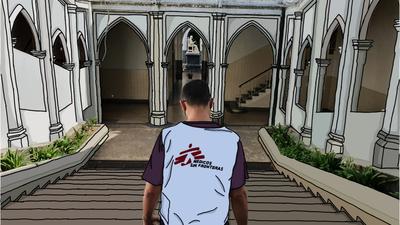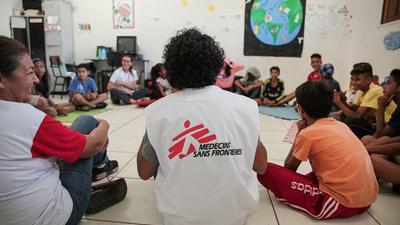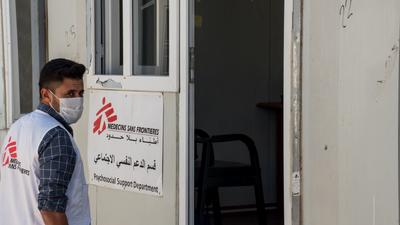MSF psychologist Raimond shares the story of a brave young patient caught up in violent conflict, and how he has learned to cope with PTSD.
In our primary health care centre in Turra, Jordan, we treat children suffering from PTSD (post-traumatic stress disorder). However the therapy of the youngest, most fragile and vulnerable members of our society is only the beginning: family stressors, out-dated parenting strategies and social tensions in the environment mean our team must treat our patients in a holistic way in order to have long-lasting effects.
In practice, this 'holistic' approach means that we provide specially developed psychotherapeutic techniques (Narrative Exposure Therapy) to treat children's trauma, use systemic counselling which involves the whole family, and conduct workshops in the communities for children and adults to learn conflict resolution strategies.
We also refer our patients to other organisations (NGOs) who support them financially or with other things they need (non-food-items).
Mahmoud's Story:
My name is Mahmoud and I am 10 years old.
My parents are often upset with me because I pee in my bed while I sleep. Not every night. But most of them.
I don’t know why I do it. It just happens. I am afraid very often and I dream a lot: then I wake up and everything is wet.
The first time happened right after I saw something very bad. A long time ago. Maybe four or five years.
I was living in a small village, not far from here. And this was a really nice place to live. I always played with my friends.
And we went to our neighbor. He had a small farm with sheep. And a red tractor. And olive trees.
And we were playing hide and seek.
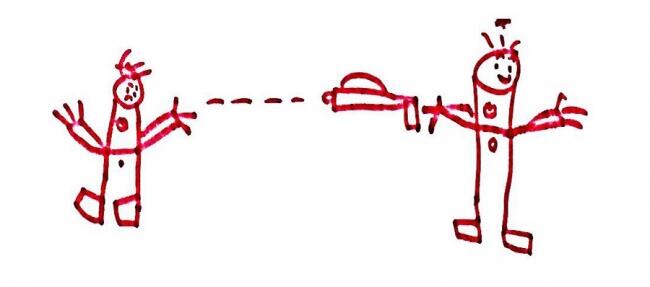
And then, the soldiers came
"I am afraid of going to sleep because of my dreams. I see the soldier and the neighbor. And sometimes, in my dream, the soldier shoots at me. And then I wake up."
"A big yet small success"
Mahmoud feels better now.
After six sessions, he rarely has any nightmares anymore. And if he does, he does not have to fear his father anymore.
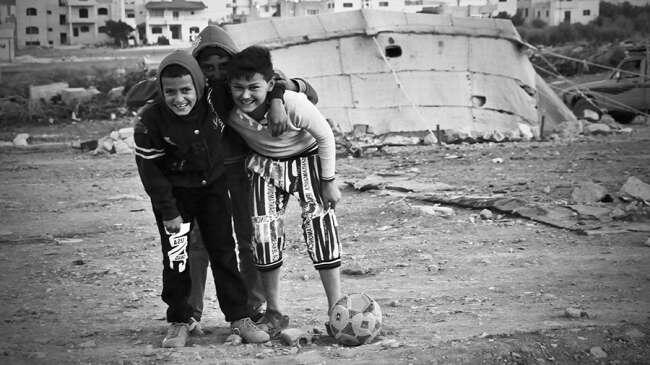
He appears less aggressive, because he has learned to cope with his anxiety and frustration. And he tells us, very proudly, that football is more fun since he understood to play with his friends rather against them.
Sometimes, even his little sister joins them and they play together.
Mahmoud is lucky. His parents were able to overcome their fear of the stigma of receiving mental healthcare. They are open and gratefully accept our help.
In a world of prejudices and strict religious rules, this a significant step.
For us, this is a big yet small success. Many more children and their families are out there, waiting for us to be found.



